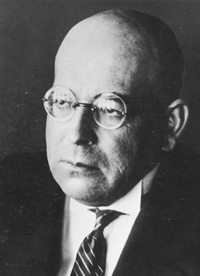
Similarly, he combined various Mediterranean cultures of antiquity including both Ancient Greece and Ancient Rome as " Apollonian", and modern Westerners as " Faustian". Spengler combined a number of groups under the " Magian" label " Semitic", Arabian, Persian, and the Abrahamic religions in general as originating from them (Judaism, Christianity, Islam). Spengler recognized at least eight high cultures: Babylonian, Egyptian, Chinese, Indian, Mesoamerican ( Mayan/ Aztec), Classical ( Greek/ Roman, "Apollonian"), the non-Babylonian Middle East ("Magian"), and Western or European ("Faustian"). He believed that the West was in its "evening", similar to the late Roman Empire, and approaching its eventual decline despite its seeming power.

For example, to Spengler, the Classical world's culture stage was in Greek and early Roman thought the expansion of the Roman Empire was its civilization phase and the collapse of the Roman and Byzantine Empires their decline. Spengler differed from others in not seeing the final civilization stage as necessarily "better" than the earlier stages rather, the military expansion and self-assured confidence that accompanied the beginning of such a phase was a sign that the civilization had arrogantly decided it had already understood the world and would stop creating bold new ideas, which would eventually lead to a decline. To Spengler, the natural lifespan of these groupings was to start as a "race" become a "culture" as it flourished and produced new insights and then become a " civilization". In his framework, the terms "culture" and "civilization" were given non-standard definitions and cultures are described as having lifespans of about a thousand years of flourishing, and a thousand years of decline. According to Spengler, the meaningful units for history are not epochs but whole cultures which evolve as organisms. Spengler introduced his book as a " Copernican overturning"-a specific metaphor of societal collapse-involving the rejection of the Eurocentric view of history, especially the division of history into the linear " ancient- medieval- modern" rubric.

The definitive edition of both volumes was published in 1923.

The second volume, subtitled Perspectives of World History, was published in 1922. The first volume, subtitled Form and Actuality, was published in the summer of 1918. The Decline of the West ( German: Der Untergang des Abendlandes more literally, The Downfall of the Occident), is a two-volume work by Oswald Spengler.


 0 kommentar(er)
0 kommentar(er)
